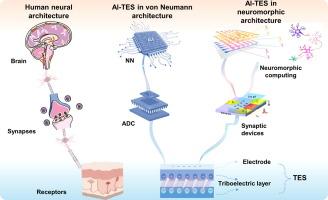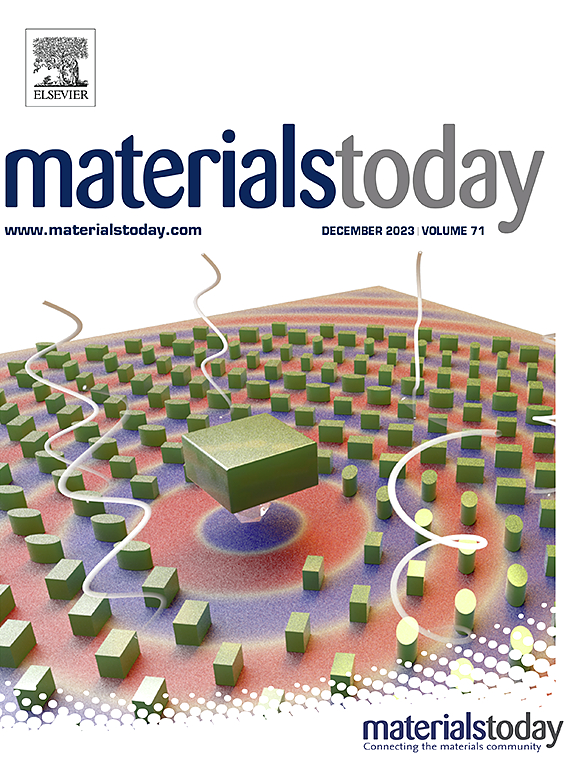A comprehensive review on triboelectric sensors and AI-integrated systems
IF 21.1
1区 材料科学
Q1 MATERIALS SCIENCE, MULTIDISCIPLINARY
引用次数: 0
Abstract
Triboelectric sensors, derived from triboelectric nanogenerators, generate electrical signals in response to mechanical stimuli. Its remarkable advantages of inherent self-powering, and ease of manufacture, combined with flexible electronics technologies, pave the way for the trillion-node IoT mission. Integration of machine learning into triboelectric sensing systems enables effective learning from sensory data and enhances task execution with increased intelligence. This comprehensive review explores the latest scientific and technological advancements in triboelectric sensors, providing insightful analyses in materials, physics, design principles, manufacturing strategies, monomodal and multimodal sensors, von Neumann architecture-based AI systems, and human-like neuromorphic systems. The discussion also covers diverse technological applications, including biomedicine, robotics, prosthetics, human–machine interfaces, AR/metaverse, smart homes, intelligent sports, and intelligent transportation. The narrative concludes by addressing existing challenges, contemplating potential applications, and outlining prospects in this burgeoning field. Covering from fundamental device physics, and AI integration strategies, to system applications, this review aims to illuminate the burgeoning field of triboelectric sensors, inspiring further innovation in self-powered AI-integrated systems and advanced applications, accelerating the paradigm shift toward the era of self-powered artificial intelligence of things.

三电传感器和人工智能集成系统综述
三电传感器源自三电纳米发电机,可对机械刺激产生电信号。其与生俱来的自供电、易于制造等显著优势与灵活的电子技术相结合,为实现万亿节点物联网任务铺平了道路。将机器学习集成到三电传感系统中,可以有效地学习传感数据,并通过提高智能来增强任务执行能力。本综述探讨了三电传感器的最新科学和技术进展,对材料、物理、设计原理、制造策略、单模态和多模态传感器、基于冯-诺依曼架构的人工智能系统以及类人神经形态系统进行了深入分析。讨论还涉及各种技术应用,包括生物医学、机器人、假肢、人机界面、AR/Metaverse、智能家居、智能体育和智能交通。文章最后探讨了这一新兴领域的现有挑战、潜在应用和发展前景。这篇综述涵盖了从基本设备物理、人工智能集成策略到系统应用的方方面面,旨在阐明三电传感器这一新兴领域,激励自供电人工智能集成系统和高级应用的进一步创新,加速向自供电物联网人工智能时代的范式转变。
本文章由计算机程序翻译,如有差异,请以英文原文为准。
求助全文
约1分钟内获得全文
求助全文
来源期刊

Materials Today
工程技术-材料科学:综合
CiteScore
36.30
自引率
1.20%
发文量
237
审稿时长
23 days
期刊介绍:
Materials Today is the leading journal in the Materials Today family, focusing on the latest and most impactful work in the materials science community. With a reputation for excellence in news and reviews, the journal has now expanded its coverage to include original research and aims to be at the forefront of the field.
We welcome comprehensive articles, short communications, and review articles from established leaders in the rapidly evolving fields of materials science and related disciplines. We strive to provide authors with rigorous peer review, fast publication, and maximum exposure for their work. While we only accept the most significant manuscripts, our speedy evaluation process ensures that there are no unnecessary publication delays.
 求助内容:
求助内容: 应助结果提醒方式:
应助结果提醒方式:


